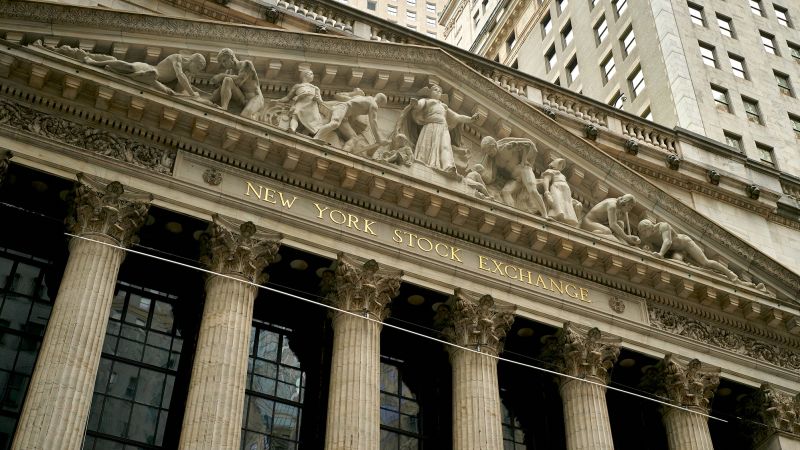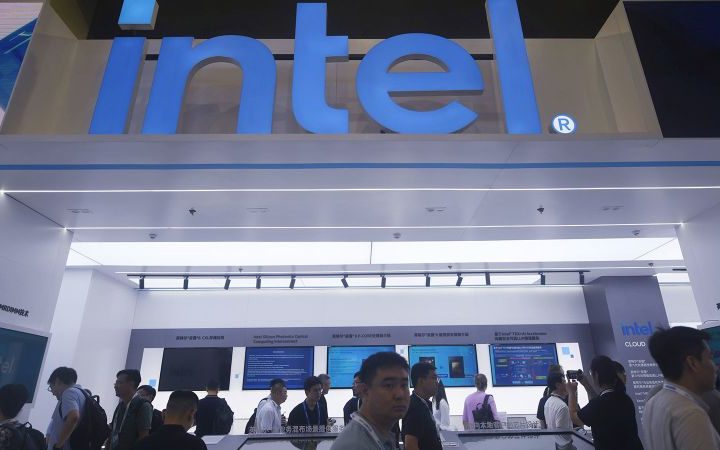A version of this story first appeared in CNN Business’ Before the Bell newsletter. Not a subscriber? You can sign up right here. You can listen to an audio version of the newsletter by clicking the same link.
The Israel-Hamas war is sending investors in search of defensive assets.
Israel declared war on Hamas Sunday after the Palestinian militant group launched a brutal attack that killed at least 1,300 people. Stock markets initially fell on Monday, before rebounding.
But investors have since bought up shares of virtually risk-free government bonds, indicating that Wall Street remains worried. An exchange-traded fund that tracks an index of US Treasury bonds with maturities longer than 20 years, rose 1.5% this week.
Utilities, energy and real estate stocks have also outperformed the broader S&P 500 index’s roughly 1% gain this week. Those sectors are considered defensive since consumers tend to prioritize spending on necessities like electricity and shelter over discretionary purchases during periods of economic hardship.
Oil prices remain well below recent highs but have gyrated this week — and are rising again Friday — as investors worry that the war could escalate into a regional conflict encompassing key oil producers. That could further squeeze global crude supply that’s already tight because of output cuts by Saudi Arabia and Russia.
“Any chatter that Israel, now seemingly focused on shutting down Hamas’s operations, is preparing to strike beyond the immediate conflict, will escalate upward pressure on prices,” said George Smith, portfolio strategist at LPL Financial.
The geopolitical uncertainty has also boosted assets cast away by investors in recent months. Prices of the most actively traded gold futures contracts are up roughly 2% this week, following declines driven by climbing bond yields and the US dollar. The yellow metal is prized for its steadiness even when the economy and markets turn volatile.
Bryan Hinmon, chief investment officer at Motley Fool Asset Management, says that the US could also strain its finances if the country gives financial aid to Israel in addition to its ongoing aid to Ukraine during its war with Russia. That could add to the already staggering pile of US debt at sky-high interest rates, and potentially even call into question the US’s ability to pay back that debt, he said.
Still, Hinmon says his firm hasn’t made any changes to its portfolio in light of the war and has no plans to do so, citing its approach of trying to look 5-10 years ahead when making its investment decisions.
“Hopefully, that time period allows us to see through to the other side,” he said.
EU officials warned TikTok Thursday about “illegal content and disinformation” on its platform linked to the war between Hamas and Israel, calling for CEO Shou Zi Chew to respond within 24 hours.
In a letter to Chew, European Commissioner Thierry Breton said failure to comply with European Union laws around content moderation could result in penalties, reports my colleague Brian Fung.
It is the third such letter Breton has sent to large social media platforms this week, after he sent similar warnings to X, the platform formerly known as Twitter, and Meta. (The Commission has subsequently initiated a formal investigation into misinformation on X.)
In August, a recently passed EU law known as the Digital Services Act went into effect for large online platforms, including the companies Breton addressed this week. The law sets out specific obligations for social media companies to protect user privacy and safety.
“I therefore invite you to urgently step up your efforts and ensure your systems are effective, and report on the crisis measures taken to my team,” Breton wrote in the letter, which he shared on X.
TikTok didn’t immediately respond to a request for comment.
Russia has reimposed some of the capital controls it introduced in the wake of its full-scale invasion of Ukraine in a new attempt to prop up the ruble as the cost of war weighs heavily on the economy, reports my colleague Anna Cooban.
The ailing currency gained 3.4% Thursday to trade at 96 against the US dollar — its strongest level in a little over two weeks — after Moscow announced late Wednesday that it would force dozens of exporters to convert their foreign revenues into rubles.
According to the statement, Russia’s financial regulator, Rosfinmonitoring, will monitor and enforce the new requirements on 43 companies in the energy, metals, grain and other sectors.
“The main purpose of these measures is to create long-term conditions for increasing the transparency and predictability of the currency market, [and] to reduce the opportunity for currency speculation,” Russia’s First Deputy Prime Minister Andrei Belousov said in a statement Wednesday.
Read more here.
Read the full article here







